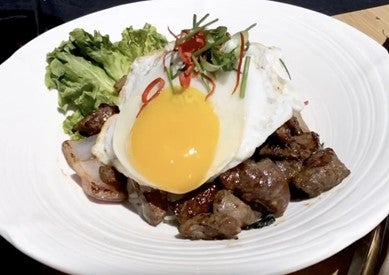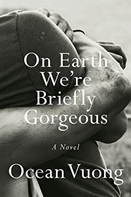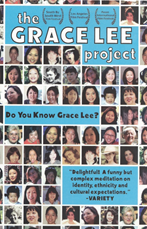
University of Waterloo Libraries' Student Engagement Committee is thrilled to deliver you the third issue of our 2021 Asian Heritage Month newsletter series! Tell all your friends so they can subscribe to the Asian Heritage Month newsletter, too!
Each issue includes a selection of fun and informative content, including recipes, film recommendations, stress-relieving activities and more! We’ll also delve a little deeper into topics that explore some of the many ways the Asian diaspora has contributed to our country and culture, and the ongoing challenges these diverse communities continue to face locally and globally. Of course, it wouldn’t be a Libraries newsletter if we didn’t follow that up with some recommended readings!
Learn more about Asian Heritage Month activities at University of Waterloo.
If you or someone you know is experiencing the impacts of anti-Asian hate and racism, you can get support from Waterloo’s Counselling Services, or visit Human Rights, Equity and Inclusion’s Anti-racism resources.
Puzzle

Vietnamese 'Boat People' puzzle. After the Vietnam War in 1975, millions of Vietnamese refugees fled in boats in search of freedom. Canada was one of a handful of countries that received these refugees. Journey to Freedom Day on April 30 celebrates the journey of the boat people to Canada. “Vietnamese Boat People - Thuyá»n nhân VN” by manhhai is licensed under CC BY 2.0.
Recipes

Learn from Chef and restaurant owner Dennis Wong from Le Soleil Restaurant in San Jose, CA as he guides you through making his Vietnamese Shaking Beef recipe!
Support local Asian-owned business
Reduce your impact on the environment by buying local! See our map of local Asian-owned business in the Kitchener-Waterloo area.
Fun fact
The University of Waterloo offers courses in East Asian Studies (EAS). A great way to learn more about East Asian culture and language (as well as get a credit or two) is to partake in these courses. EAS offers courses such as:
- EASIA 275R - Religion and Japanese film
- EASIA 231R - Calligraphy to conceptual art: Text as an image in Islamic and East Asian visual arts
- EASIA 120R - Monsters and magic in Japanese popular culture
- EASIA 202R - Chinese culture and society
This only covers a small amount of the courses offered as there are dozens more that range in course level, and topic as you can choose to learn more about East Asian history, or an East Asian language such as Korean (course code: KOREA 101R First-Year Korean 1).
Recommended reads

On Earth We're Briefly Gorgeous is a letter from a son to a mother who cannot read. Written when the speaker, Little Dog, is in his late twenties, the letter unearths a family's history that began before he was born, a history whose epicentre is rooted in Vietnam and serves as a doorway into parts of his life his mother has never known, all of it leading to an unforgettable revelation. At once a witness to the fraught yet undeniable love between a single mother and her son, it is also a brutally honest exploration of race, class, and masculinity. Asking questions central to our American moment, immersed as we are in addiction, violence, and trauma, but undergirded by compassion and tenderness, On Earth We're Briefly Gorgeous is as much about the power of telling one's own story as it is about the obliterating silence of not being heard. Provided by publisher.
Film fun

The Raid: Redemption (2012): In Jakarta, Indonesia, Lieutenant Wahyu organizes the invasion of the safehouse of a very powerful drug lord and his gang in the hopes of bringing them down. However, with their cover blown, Wahyu and his men must charge through the building to complete the mission and hopefully survive. This Indonesian action thriller will surely keep you at the edge of your seat.

The Grace Lee Project: Grace Lee is a Korean American from Missouri, US. As she grew up, she began to realize the common nature of her name and the many preconceived notions surrounding it. Someone named Grace Lee is nice, quiet, and smart; someone both impressive and forgettable. Set to break the mould of her name, Grace Lee finds other individuals by this name around the world to showcase their unique character traits and stories. This documentary deconstructs many stereotypes associated with “Grace Lee” and Asian-Americans, while exploring identity issues related to culture, ethnicity, and humanity. Available through University of Waterloo's subscription to Kanopy.
Take time for self-care

Gua sha or “jade scraping” is a traditional Chinese healing method where a professional uses a smooth-edged tool to glide across the skin while applying pressure. It originally started as a body treatment that creates red spots on the skin called petechiae. Those who practice gua sha believe it releases unhealthy matter in the blood of sore, tired, or injured areas that are caused by a disruption of qi. More recently, gua sha is being used as a facial massage that can be practiced at home using the same scraping technique. The movements are meant to assist with lymphatic drainage and the result is a more sculpted and lifted appearance. You can try this yourself, as jade scrapers and rollers are now widely available, or use any smooth-edged tool.
Read: issue one, issue two, issue three, issue four


